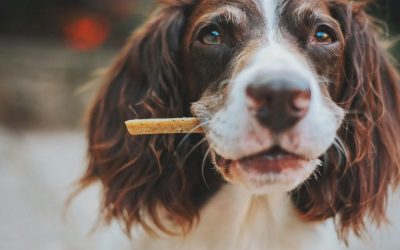National Pet Obesity Awareness Day is coming up on Wednesday, October 12th. The numbers on pet obesity are very sobering. According to the Association for Pet Obesity Prevention, over half of our canine and feline companions are overweight. Or, to be specific, that is about 56 percent of dogs, and almost 60 percent of cats. That’s a lot of hefty pets … who are facing some hefty health issues. A Tarzana, CA vet offers some information on pet obesity below.
Effects
Obesity is just as bad for pets as it is for people! Some of the medical issues that chubby pets are at risk of developing include heart disease, respiratory issues, inflammation, skin problems, metabolic and endocrine troubles, and bone/joint issues. Chubby pets also have reduced life expectancy, have more difficulty reproducing, and are at higher risk of developing certain cancers.
Weight Gain
As you can probably guess, diet and exercise both have very strong impacts on a pet’s weight. However, there are other factors as well. Obesity risks increase as pets age. These issues are also more prevalent in certain breeds. Pugs, Bulldogs, and Labs are a few pups that are prone to packing on pounds. As for kitties, the Maine Coon and its close cousin, the Norwegian Forest Cat, have clawed their way to the top of that list. Sometimes weight gain can be indicative of medical issues. If your furry pal has recently started packing on pounds and you’re not sure why, contact your vet.
Diet
How do you help your pet lose weight? The basics are the same for pets as for people: reduced calorie intake and increased exercise are at the top of the list. Some pets will benefit from a weight loss or prescription diet. Portion control is also very important. Even giving your dog or cat just a little too much food every day can cause them to pack on pounds.
Slimming Down
If you know or suspect that your pet needs to lose weight, consult your vet. Your pet’s diet should be customized according to their size, breed, age, and weight. It’s important that your furry friend take the pounds off slowly. Rapid decreases in caloric intakes can wreak havoc on your pet’s metabolism, and could make them very sick. Do you have questions about your pet’s diet or care? Contact us, your Tarzana, CA animal clinic!



